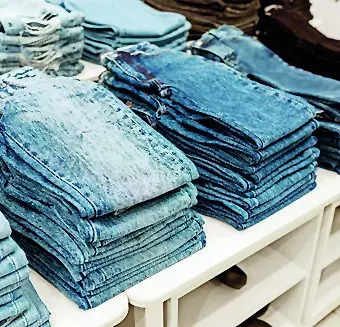
MUMBAI: Reliance Brands is exiting its partnership with Italian denim brand Replay and Dutch clothing brand G-Star RAW, amid weak demand for discretionary products including these global apparel brands. Reliance has started to shut stores of these brands and is replacing them with their other international labels they have partnered, said two executives privy with the matter.
“Most of the G-Star stores have been shut but have presence through online marketplace. Reliance will soon shut Replay stores as they feel these two brands are losing relevance in the Indian market,” said one of the executives, adding that G-Star might look at partnering with another retailer to distribute their brand in India.
The Netherlands-based G-Star partnered Genesis Luxury to enter India a decade ago and came into Reliance’s fold after it bought Genesis in 2017. Reliance Brands also bagged exclusive distribution rights for Replay, owned by Fashion Box, in 2018, adding to its extensive denim portfolio, which includes brands such as Gas, Diesel, Armani and Superdry.
As the world’s most populous nation, India is an attractive market for apparel brands, especially with youngsters increasingly embracing western-style clothing. But the market is also getting crowded as most global rivals from Zara and H&M to Uniqlo and Gap have set up shop in the country.
While top global apparel and fast fashion brands struck a strong chord with young customers, racking up sales growth of between 40% and 60% post pandemic to buck the slowdown trend, the situation reversed over the past 6-8 quarters. Consumers started reducing non-essential spending, such as on apparel, lifestyle products, electronics and dining out, since early last year due to high inflation, increase in interest rates, job losses in sectors like startups and IT and an overall slowdown in the economy.
According to Retailers Association of India (RAI), sales growth in organised retail segments such as apparel, footwear, beauty and quick service restaurants halved to 9% last year and slowed further to about 5% in the first six months of the current fiscal year.












